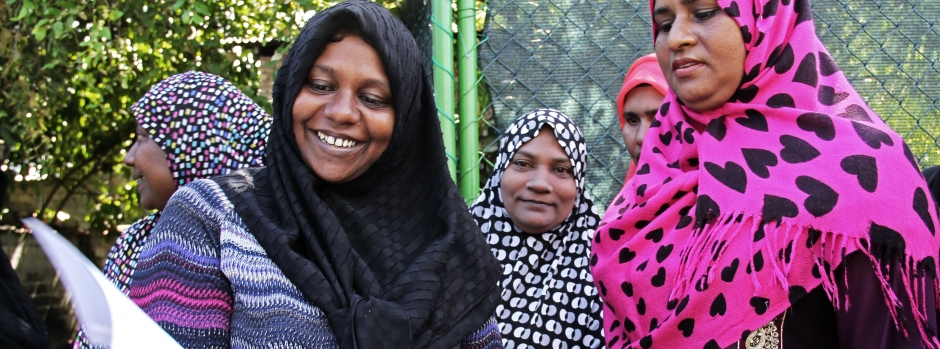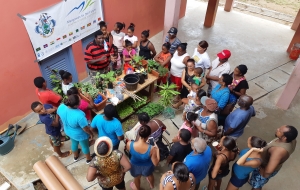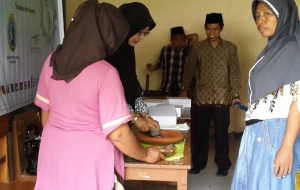Knowledge Hub :: MFF Solutions :: Empowerment
Empowerment

Women meet to discuss project planning, MFF Maldives © MFF Maldives
Empowerment is the process of obtaining basic opportunities for marginalized people, either by direct contact with those communities, or through the help of non-marginalized others who share their access to these opportunities. It can be assimilated by examining the concepts of power and powerlessness.
People’s empowerment and their ability to hold others to account is strongly influenced by their individual assets (such as land, housing, livestock, savings) and capabilities of all types: human (such as good health and education), social (such as social belonging, sense of identity, leadership relations) and psychological (self-esteem, self-confidence, the ability to imagine and aspire to a better future). Also important are people’s collective assets and capabilities, such as voice, organization, representation and identity. Empowerment also involves encouraging and developing the skills for self-sufficiency of individuals and groups.
In coastal communities, empowerment is the development of the ability to exercise management control of resources and institutions, to enhance livelihood opportunities and to secure sustainable use of resources upon which communities depend. Empowerment is most effective when done in conjunction with established government agencies. By strengthening coastal communities’ access and control over coastal resources, there is a greater chance that economic benefits will accrue locally. Empowerment entails building the capacity of communities (and local government) to effectively manage their resources. Building capacity and empowering communities and government decision makers, increases the potential for successful coastal conservation and sustainable development, resulting in positive social, economic, and ecological impacts, with increased equity and benefit sharing for coastal populations. Knowledge, for example, helps to strengthen empowerment, which in turn can make an important contribution to improving governance. Thus, a combination of enabling conditions will often be needed to support particular programmes or projects.
Here you will find examples of projects that have been implemented by MFF that have contributed to strengthening resilience of coastal communities by addressing empowerment through civil society engagement, building capacity, supporting diversified and sustainable livelihoods, and addressing gender specific issues in the coastal resource management context.

